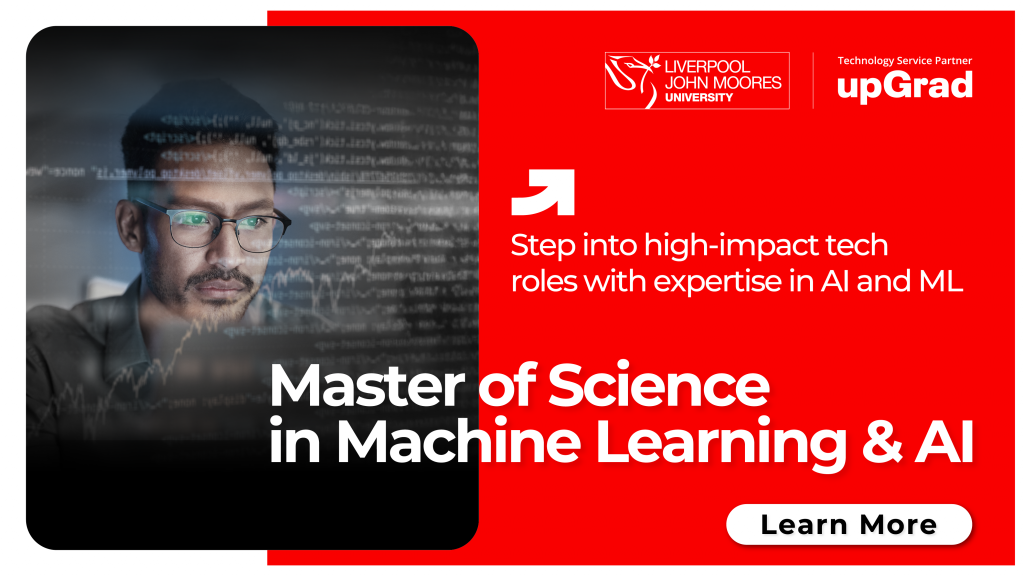Canadian businesses are undergoing a rapid digital transformation, and machine learning is at the heart of it. From automating operations to predicting market trends, this technology is empowering leaders to make smarter, faster decisions. According to a 2024 Deloitte report, 62% of Canadian executives have already adopted AI and machine learning tools to gain a competitive edge. The potential is vast, but only if you know where and how to apply it. This blog explores the top use cases of machine learning for business leaders in Canada who want to future-proof their organizations.
Practical Applications of Machine Learning for Business Leaders in Canada
Understanding the real-world impact of machine learning for business leaders is key to driving innovation and efficiency. Below are some of the most practical applications across core business functions in Canada.
| Business Area | ML Application |
| Marketing & Sales |
|
| Supply Chain & Operations |
|
| Finance & Risk Management |
|
| Customer Experience (CX) |
|
| Human Resources |
|
| Strategic Decision-Making |
|
| Manufacturing |
|
| Healthcare & Insurance |
|
| E-Commerce & Retail |
|
| Real Estate & Property Management |
|
Marketing & Sales
Machine learning for business is transforming how companies approach marketing and sales. Predictive models help identify high-potential leads and personalize outreach across customer segments. With tools powered by AI and ML for business leaders, Canadian executives can increase ROI by targeting the right audience at the right time, often with automated, data-driven campaigns.
Supply Chain & Operations
Machine learning (ML) models play a crucial role in enhancing operational efficiency, particularly in supply chain forecasting and logistics. Business leaders can use real-time data to anticipate demand, prevent bottlenecks, and optimize routes. This is particularly valuable for machine learning for small businesses, where lean operations need more innovative resource planning to stay competitive.
Finance & Risk Management
Machine learning for business analytics allows finance teams to automate fraud detection, assess creditworthiness, and model financial risks more accurately. AI-powered algorithms process massive volumes of transactional data far faster than traditional methods, providing leaders with sharper insights and faster responses in dynamic financial environments.
Customer Experience (CX)
Customer loyalty now hinges on personalization, and machine learning (ML) delivers just that. From smart chatbots to sentiment analysis and tailored recommendations, machine learning for business is elevating how brands connect with users. Business leaders can now track behavior in real-time and improve satisfaction while reducing service costs through AI-driven automation.
Human Resources
HR departments are using AI and ML to transform hiring, performance management, and employee engagement. ML tools can screen resumes, identify high-potential talent, and predict attrition. This not only speeds up decision-making but also helps build data-driven, inclusive workplaces based on insights rather than assumptions.
Strategic Decision-Making
Business leaders are increasingly turning to ML for forecasting and scenario planning. ML models can simulate outcomes, reduce decision biases, and identify patterns invisible to the human eye. For executives exploring machine learning for business, this strategic application is a game-changer for long-term competitiveness.
Manufacturing
Smart factories powered by machine learning (ML) improve productivity through predictive maintenance and automated quality control. Leaders can reduce downtime by predicting equipment failures before they occur. For both large enterprises and small businesses, machine learning supports lean manufacturing and faster, more cost-effective production cycles.
Healthcare & Insurance
From early diagnosis tools to automated claims processing, machine learning is driving innovation in healthcare and insurance. Machine learning (ML) algorithms can assess patient risk, optimize care plans, and detect fraudulent claims, helping providers and insurers deliver better outcomes while reducing costs.
E-Commerce & Retail
AI tools track customer behavior in real-time, offering insights into buying patterns, preferences, and trends. This enables dynamic pricing and personalized recommendations, vital for leaders in machine learning for business analytics. Both small and large retailers are leveraging machine learning (ML) to optimize inventory planning and boost customer satisfaction.
Real Estate & Property Management
Whether it’s predicting property value trends or screening tenants, machine learning (ML) helps real estate businesses operate more efficiently. With automated risk assessments and investment analysis, AI and ML for business leaders offer data-driven clarity in a traditionally intuition-based industry. It’s especially impactful for those managing large property portfolios.
Also Read: Top 5 Easy-to-Learn Tech Skills for New Career Paths in Canada
Key ML Concepts Every Business Leader Should Understand
To make informed decisions, business leaders must grasp the core principles of machine learning for business. These foundational concepts are crucial, whether you’re leveraging AI to grow as a business leader, applying machine learning for business analytics, or collaborating with AI and machine learning companies to drive innovation.
Key concepts include:
- Supervised vs. Unsupervised Learning: Learn the difference between models trained on labeled vs. unlabeled data.
- Model Training: Understand how algorithms improve through exposure to data.
- Algorithmic Bias: Recognize how biased data can lead to flawed predictions.
- Ethical AI: Ensure transparent, fair, and responsible AI use.
- Data Requirements: Know why clean, sufficient data is crucial for the application of machine learning in business.
Also Read: Trending Online Courses for Upskilling in Canada
Learn Machine Learning Strategy and Application with upGrad
At upGrad, we partner with leading global universities to offer high-impact programs in machine learning for business leaders. Designed for non-technical professionals, these courses focus on practical strategies, real-world applications, and business case studies. With expert-led content and flexible learning, we empower leaders to make smarter, data-driven decisions and drive innovation across their organizations.
- Post Graduate Certificate in Generative AI (E-Learning)
- Master of Science in Machine Learning & AI from Liverpool John Moores University
Related Article
In-Demand Machine Learning Jobs in Canada for 2026
🎓 Explore Our Top-Rated Courses in Canada
Take the next step in your career with industry-relevant online courses designed for working professionals in Canada.
FAQs on How Canadian Business Leaders Can Use Machine Learning
Q: How can business leaders use machine learning without coding?
Ans: Business leaders can leverage no-code ML platforms, such as Google AutoML, Microsoft Azure ML, or DataRobot. These tools offer drag-and-drop features, dashboards, and automated insights, enabling leaders to run analyses and make data-driven decisions without needing to write a single line of code.
Q: What are the top benefits of machine learning for CEOs and managers?
Ans: Machine learning helps optimize operations, predict trends, personalize customer experiences, reduce risks, and enhance ROI. For CEOs and managers, it provides more insightful information, faster decision-making, and a significant competitive advantage.
Q: Do business leaders need a technical background to understand ML?
Ans: No, a basic understanding of machine learning (ML) concepts and applications is sufficient. Many business-focused courses simplify machine learning (ML) without delving into technical details, enabling leaders to focus on strategy and impact.
Q: Can machine learning help in strategic decision-making?
Ans: Yes, ML enables data-backed forecasting, risk analysis, and scenario planning. Leaders can make proactive decisions based on real-time insights, rather than relying solely on historical data or intuition.
Q: How does upGrad help business leaders effectively adopt machine learning?
Ans: upGrad offers industry-relevant programs tailored for business professionals. These courses break down complex machine learning (ML) concepts into business-friendly modules, including real-world case studies that help leaders apply ML strategically without requiring deep technical expertise.









